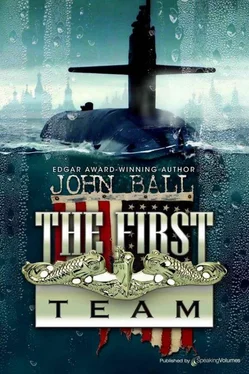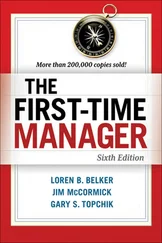Джон Болл - The First Team
Здесь есть возможность читать онлайн «Джон Болл - The First Team» весь текст электронной книги совершенно бесплатно (целиком полную версию без сокращений). В некоторых случаях можно слушать аудио, скачать через торрент в формате fb2 и присутствует краткое содержание. Год выпуска: 2013, Жанр: Триллер, на английском языке. Описание произведения, (предисловие) а так же отзывы посетителей доступны на портале библиотеки ЛибКат.
- Название:The First Team
- Автор:
- Жанр:
- Год:2013
- ISBN:нет данных
- Рейтинг книги:5 / 5. Голосов: 1
-
Избранное:Добавить в избранное
- Отзывы:
-
Ваша оценка:
- 100
- 1
- 2
- 3
- 4
- 5
The First Team: краткое содержание, описание и аннотация
Предлагаем к чтению аннотацию, описание, краткое содержание или предисловие (зависит от того, что написал сам автор книги «The First Team»). Если вы не нашли необходимую информацию о книге — напишите в комментариях, мы постараемся отыскать её.
Student protesters are being slaughtered in the Midwest.
The Jewish pogroms have begun.
You are now living in Soviet — occupied America!
One nuclear submarine and a handful of determined patriots against the combined might of Russia and Soviet-occupied America… The Most Explosive and Gripping “What If” Novel of Our Time!
First published January 1971
The First Team — читать онлайн бесплатно полную книгу (весь текст) целиком
Ниже представлен текст книги, разбитый по страницам. Система сохранения места последней прочитанной страницы, позволяет с удобством читать онлайн бесплатно книгу «The First Team», без необходимости каждый раз заново искать на чём Вы остановились. Поставьте закладку, и сможете в любой момент перейти на страницу, на которой закончили чтение.
Интервал:
Закладка:
Fitzhugh nodded his approval, then helped himself to a second of the serving dishes. He blinked for a moment and then said, “My son died for that.”
“I know, sir,” Hewlitt answered. “He was an American hero, worthy to stand beside Nathan Hale. Some day before long he very well may.”
“Mr. Hewlitt,” the senator said, “you once told me to my face that you totally disagreed with me and the policies I have followed for many years. I also remember another man who advised me to cut my throat; the worst insult I have ever received during my years in public office. He is dead now, but if he were not I would be willing to tell him that — in the light of recent events — I could forgive him that rudeness.”
Clearly the senator did not expect any comment, and Hewlitt kept still.
“In Mr. Brown we have an example of what I call a militarist; a man who was, and I presume still is, dedicated to forcing the nation to up its defense budget to buy all kinds of equipment of doubtful value, or no value whatever. I cannot call him a patriot; he is a moneymaker and that is apparently all that he lives for.”
“I have to agree with that,” Hewlitt said.
“Mr. Hewlitt, as you already know, much of my recent activity in the Senate, I mean during the past few years, has been predicated in part on certain very firm and solemn assurances I was given in apparent total sificerity while I was abroad. There were also many other considerations which I don’t wish to go into now. All that I am saying is: my position was firmly founded on principles in which I believed and to a major degree still do. Do you understand what I mean?”
“I believe so.” Hewlitt took his time in drinking some tea. “Let me state a point, senator: no one likes war — no rational person. It’s an unmitigated horror. The only reason that any nation gets itself involved in war, if it is not an aggressor, is because the alternative to armed conflict is even less acceptable. We’re getting some of that now.”
Senator Fitzhugh drained his own teacup, refilled it, and emptied it again. “Which brings us to the matter I wished to discuss with you. You will not repeat any of this?”
Hewlitt shook his head. “Not without your permission. You recognize the possibility that we may be being overheard.”
“I know, I have been listened to in my own office. But I will accept that risk. Mr. Hewlitt, my son was a member of an organization dedicated to the recapturing of the United States, to setting it free. At least that was his belief. All of the others who died with him had the same objective. Apparently Miss Bloom, with whom he was keeping company, organized the group. How that little segment of innocent students” — he fought for his composure — “how any of them came to believe that they could accomplish anything with their pitiful resources I can’t imagine, but it was for this that they died.”
Hewlitt felt for him, more than he had realized. “You have my complete sympathy,” he said. “I never met your son, and that was my loss.”
Senator Fitzhugh inclined his head in acknowledgment, then he went on. “I want to ask something of you. It may not be possible — if so I will understand. For some time you have been in the White House and very close to certain important and highly secret matters. I’m not asking you now to betray any of the trust placed in you; I recognize that that is impossible. However, in view of your past and present work, I consider it barely possible that if such an underground organization did exist, you might know of it.”
“That’s very nebulous, sir,” Hewlitt warned.
“I recognize that, I just said so, but there is that chance. Here is what I’m asking of you: I want to know if there is such a thing or not. If I could feel that Gary… died for something real, something that does actually exist, perhaps I might be able to bear his loss just a little better. At least I pray to God so.”
Hewlitt thought. He could say nothing, he knew that, but he had to respond in some way. Then he saw what he could do.
“Senator, right now I’m doing what I have to; I don’t like it but I have no real choice. Where I am, it is conceivable that I may hear of something, as you said.”
The senator was listening intently.
“If that happens, I’d like to have your permission to disclose whatever part of this conversation is necessary. You can see why: without it I could end up in the middle, not able to say anything either way.”
Senator Fitzhugh pondered that and saw the logic of it. “You want me to place it entirely in your hands,” he said.
“Yes, sir, otherwise I’d be powerless to do anything.”
Fitzhugh paused, then picked up his cup and drank a little more tea. “I have no choice,” he said, “but it isn’t very much of a risk. I have nothing to live for now anyway.”
15
As Summers, the workman, made his way down the length of the North Pier at Hunters Point Naval Shipyard, he carried his box of tools in his right hand. Even as acutely as the enemy personnel watched everything that went on with unrelenting attention, none of them noted the fact that this particular technician had previously always carried his work box the other way. He walked the full length of the pier unchallenged and did not shift his toolbox over until he had to reach inside his work clothes for the pass that would admit him to the closed-off work area which surrounded the Ramon Magsaysay. By the time that he had done that, he had already notified all of those who were directly concerned and who had been able to see him that the decision was Go.
After completing the formalities and allowing himself to be searched for possible concealed weapons or materiel, he opened his toolbox for the customary examination. It was looked at closely as it always was, but nothing was amiss. All this done, he was allowed to cross the short brow onto the deck of the Magsaysay and then down an open hatch into her interior.
In the kit of tools that had passed inspection there was a steel measuring tape which had been substituted for the one he normally had. In appearance and weight it was an exact duplicate; if anyone were to attempt to use it, the tape would unreel a good five feet before it began to bind as though something was jammed in the internal mechanism. It was a beautiful piece of equipment that had been created by Stanley Cumberland. It was also somewhat dangerous. It carried the highest priority; Walter Wagner had brought it with him when he had come to the Coast.
For the twenty-three other members of Operation Low Blow who were employed inside the hull of the submarine it was a very long morning. No tension could be evident in the air; the enemy inspector on board roamed about constantly and was at everyone’s elbow several times during the first few hours. There were others on board too who had no knowledge of Low Blow or any suspicion that it existed. Two of the key personnel knew about the steel measuring tape; Major Pappas left nothing to chance and there was a remote possibility that something might happen to Summers. If that occurred, they would carry on for him.
Everyone, even including the enemy security inspector, came up at noon to eat on the pier. No foodstuffs were allowed on board the Magsaysay or any other ship undergoing work at the yard; that had been the rule long before the enemy had first set foot on American soil. Just before the lunch break was over, the enormous traveling crane which served the North Pier came slowly up, bringing a large electrical unit of some kind for the surface ship tied up at berth seven. When the load had been set down the boom of the crane rose a little higher in the air before the overhead monster moved back in the direction from which it had come. Summers saw it and so did the others who understood; everything was in order and the word was still go.
Читать дальшеИнтервал:
Закладка:
Похожие книги на «The First Team»
Представляем Вашему вниманию похожие книги на «The First Team» списком для выбора. Мы отобрали схожую по названию и смыслу литературу в надежде предоставить читателям больше вариантов отыскать новые, интересные, ещё непрочитанные произведения.
Обсуждение, отзывы о книге «The First Team» и просто собственные мнения читателей. Оставьте ваши комментарии, напишите, что Вы думаете о произведении, его смысле или главных героях. Укажите что конкретно понравилось, а что нет, и почему Вы так считаете.












